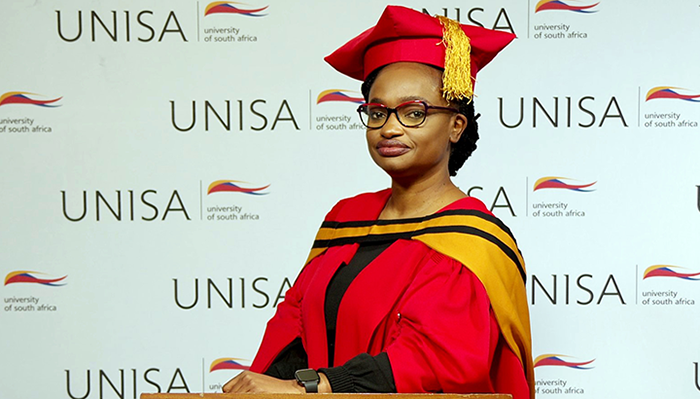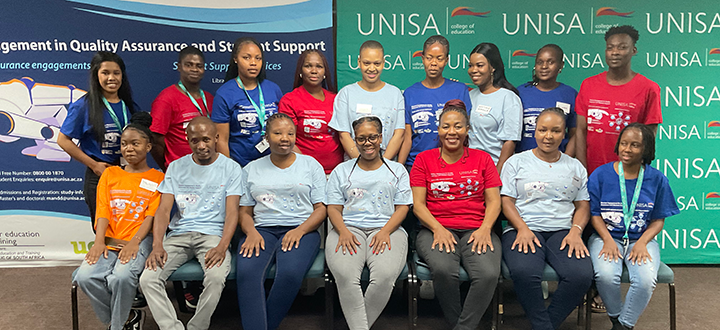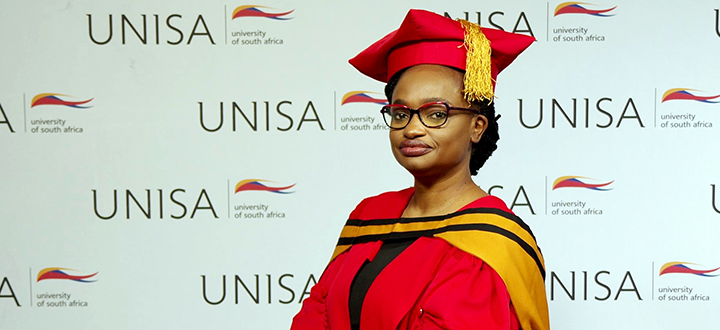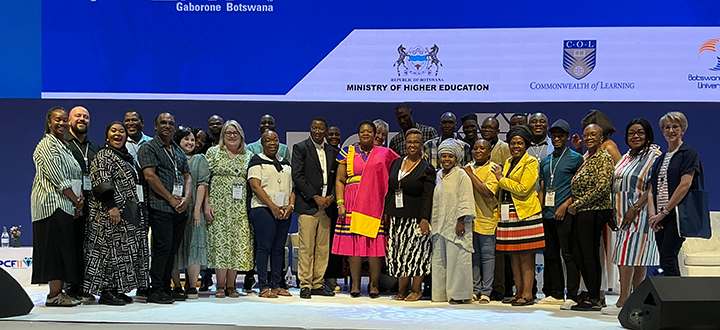College of Human Sciences
Unisan's passion led her to transform public archives

Prof Nampombe Saurombe
The College of Human Sciences recently gathered to honour the eminence in scholarship demonstrated by Prof Nampombe Saurombe as she delivered her inaugural lecture.
An inaugural lecture is the highest peak of an academic journey. It’s a formal presentation given by a newly appointed professor at a university to introduce their research to their peers. It also serves as an opportunity for one to be celebrated and to acknowledge the hard work done over the years.
Saurombe is the chair of the Department of Information Science, and her areas of specialisation are archives and records management, information for development (community/public libraries and school libraries) and information literacy. She says her belief in the democratising power of information led her to pursue a career in Information Science: "I was intrigued by how information can act as both a bridge and a barrier – it can either perpetuate existing inequalities or serve as a powerful tool for social transformation."
She further adds that she was particularly drawn to the field of Information Science, especially the niche of archival public programming and advocacy. "Information Science allows us to examine not only how information is organised and accessed, but also who has access to it and whose voices are heard. It challenges us to design systems that equitably serve all members of society," Saurombe elaborates.
Before delivering her lecture, Saurombe began by acknowledging the role played by God, whom she says deserves all the glory for her academic achievements and the opportunities she has received. She further thanked her family for their unwavering support, stating that it has been the foundation of her journey. Her research paper, titled "From Margins to Centre: Transforming Public Archives Through Public Programming and Advocacy Transforming Public Archives Through Public Programming and Advocacy", reflects both her personal journey and a broader vision regarding the value of archives – an essential branch of Information Science – in our society.
Her title symbolises the transformative potential of archival public programming and advocacy within repositories to bring marginalised voices, underrepresented communities, and alternative ways of knowing into the centre of scholarly discourse and practice. She discovered that public archival repositories often remain one of the least-utilised sources of information, despite having valuable resources that impact all areas of our society. "Through participatory stewardship," she stated, "communities and archival repositories can ensure that these resources are valued and utilised to meet the diverse information needs of their populations. It emphasises the idea that the most innovative solutions frequently emerge from the periphery, and it is our responsibility as scholars to create inclusive spaces where diverse perspectives can thrive and contribute to the advancement of knowledge."
Saurombe said that she wishes that the field of Information Science in South Africa could become a leading force in addressing unique challenges while contributing to global knowledge. "I envision a field that embraces our rich cultural diversity, incorporates indigenous knowledge systems, and develops innovative digital solutions tailored to our specific contexts, such as improving rural information access and creating multilingual information systems," she continued. "I hope to see South African Information Science scholars recognised internationally, not just for adopting global trends, but for pioneering approaches from which other countries can learn. Most importantly, I want our field to play a crucial role in building a more informed, equitable, and connected society."
The newly appointed professor hopes to be remembered as someone who expanded the boundaries of Information Science to be more inclusive and socially conscious. "My desired legacy is threefold: first, to have contributed to making our field more accessible to diverse communities; second, to have mentored a generation of scholars who engage with Information Science through both academic rigour and social responsibility; and third, to have demonstrated that rigorous scholarship can be deeply connected to community needs and social justice. I want my work to serve as a bridge between academia and society, illustrating that Information Science can be a powerful force for positive change."
* By Nnana Martina Jege, Communication and Marketing Specialist, College of Human Sciences
Publish date: 2025-10-08 00:00:00.0


 Groundbreaking milestone as Unisa exceeds 100 patents granted
Groundbreaking milestone as Unisa exceeds 100 patents granted
 Giving students a voice in issues of QA
Giving students a voice in issues of QA
 Unisan's passion led her to transform public archives
Unisan's passion led her to transform public archives
 Strong showing from Unisa at the PCF11 Conference
Strong showing from Unisa at the PCF11 Conference
 Unisan honoured with Mail & Guardian award
Unisan honoured with Mail & Guardian award